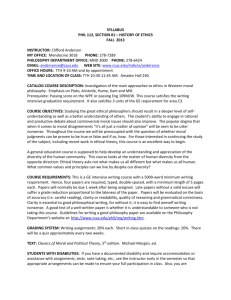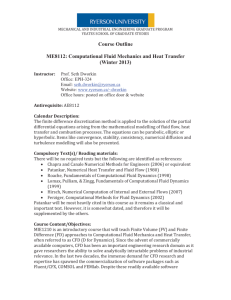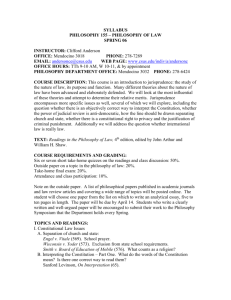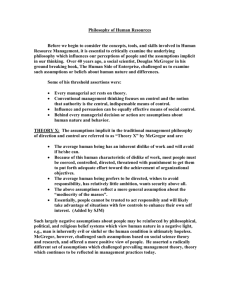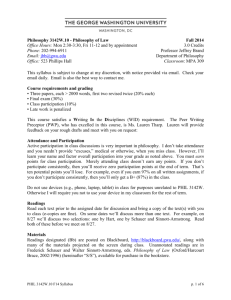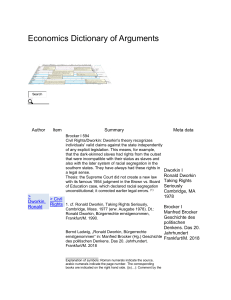Syllabus
advertisement
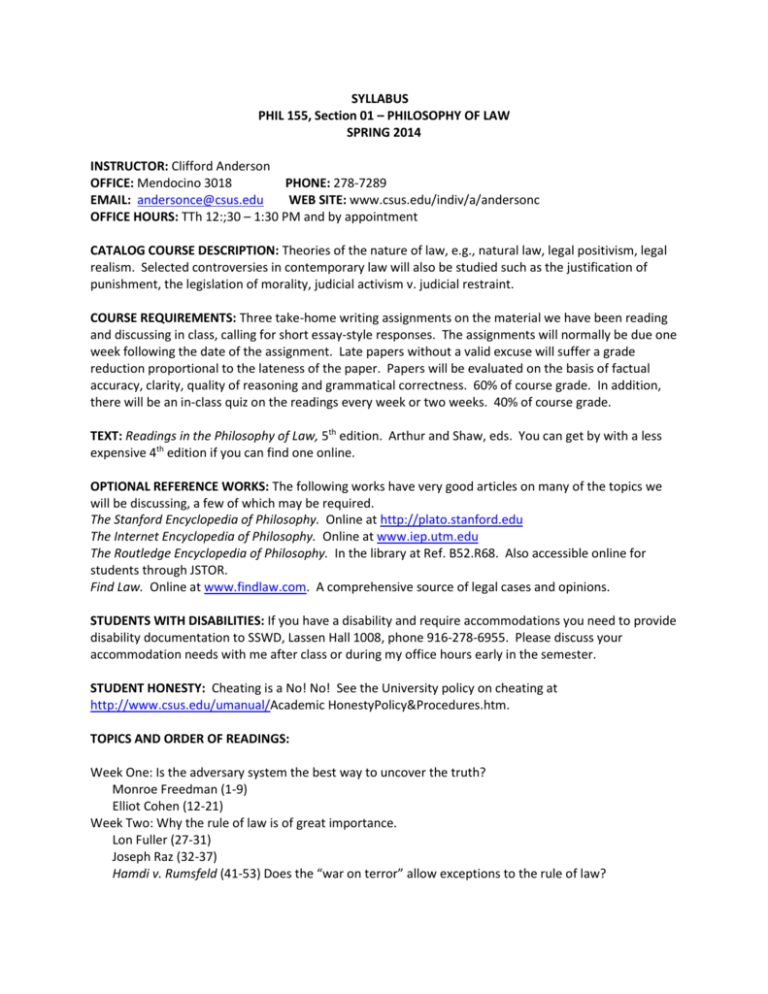
SYLLABUS PHIL 155, Section 01 – PHILOSOPHY OF LAW SPRING 2014 INSTRUCTOR: Clifford Anderson OFFICE: Mendocino 3018 PHONE: 278-7289 EMAIL: andersonce@csus.edu WEB SITE: www.csus.edu/indiv/a/andersonc OFFICE HOURS: TTh 12:;30 – 1:30 PM and by appointment CATALOG COURSE DESCRIPTION: Theories of the nature of law, e.g., natural law, legal positivism, legal realism. Selected controversies in contemporary law will also be studied such as the justification of punishment, the legislation of morality, judicial activism v. judicial restraint. COURSE REQUIREMENTS: Three take-home writing assignments on the material we have been reading and discussing in class, calling for short essay-style responses. The assignments will normally be due one week following the date of the assignment. Late papers without a valid excuse will suffer a grade reduction proportional to the lateness of the paper. Papers will be evaluated on the basis of factual accuracy, clarity, quality of reasoning and grammatical correctness. 60% of course grade. In addition, there will be an in-class quiz on the readings every week or two weeks. 40% of course grade. TEXT: Readings in the Philosophy of Law, 5th edition. Arthur and Shaw, eds. You can get by with a less expensive 4th edition if you can find one online. OPTIONAL REFERENCE WORKS: The following works have very good articles on many of the topics we will be discussing, a few of which may be required. The Stanford Encyclopedia of Philosophy. Online at http://plato.stanford.edu The Internet Encyclopedia of Philosophy. Online at www.iep.utm.edu The Routledge Encyclopedia of Philosophy. In the library at Ref. B52.R68. Also accessible online for students through JSTOR. Find Law. Online at www.findlaw.com. A comprehensive source of legal cases and opinions. STUDENTS WITH DISABILITIES: If you have a disability and require accommodations you need to provide disability documentation to SSWD, Lassen Hall 1008, phone 916-278-6955. Please discuss your accommodation needs with me after class or during my office hours early in the semester. STUDENT HONESTY: Cheating is a No! No! See the University policy on cheating at http://www.csus.edu/umanual/Academic HonestyPolicy&Procedures.htm. TOPICS AND ORDER OF READINGS: Week One: Is the adversary system the best way to uncover the truth? Monroe Freedman (1-9) Elliot Cohen (12-21) Week Two: Why the rule of law is of great importance. Lon Fuller (27-31) Joseph Raz (32-37) Hamdi v. Rumsfeld (41-53) Does the “war on terror” allow exceptions to the rule of law? Week Three: Why acts of civil disobedience can be of great public benefit. John Rawls (59-66) Ronald Dworkin (67-72) First paper assigned. Week Four: Problems in legal reasoning. Is there just one correct way to interpret a statute? Tony Honore (87-92) Smith v. U.S. (94-97) Riggs v. Palmer (97-98) Are courts strictly bound by a precedent case? Larry Alexander (113-117) Planned Parenthood v. Casey (117-122) Weeks Five and Six: Is there one correct way to interpret the U.S. Constitution? Ronald Dworkin (123-126) Rochin v. California (126-131) The Scalia/Dworkin debate (132-143) District of Columbia v. Heller (144-151) Richard Posner (151-156) Week Seven: Theories of the general nature of a legal system. Legal positivism: Law is a body of man-made rules. John Austin (173-177) H.L.A. Hart (202-217) Law is more than a body of man-made legal rules; it includes moral judgments. Ronald Dworkin (208-217) Weeks Eight and Nine: How, if at all, can legal punishment be justified? Richard Brandt (262-267) Punishment as a means of controlling crime. Herbert Morris (268-274) Punishment as a way of acknowledging human dignity. Jean Hampton (275-278) Punishment sends a moral message to the offender. Randy Barnett (279-284) Restitution is better than punishment. Second paper assigned. Week Ten: Plea bargaining. Does it short-change the rights of accused persons? Kenneth Kipnis (287-293) The exclusionary rule. Should a criminal go free just because the evidence against him was illegally Gathered? Malcolm Wilkey and Stephen Sachs (309-319) Can statistical evidence alone prove racial bias in sentencing? McCloskey v. Kemp (357-359) Week Eleven: Tort Law. Is it unfair to hold people responsible for the damages they cause by accident? William Prosser (427-434) Do we have a duty to rescue persons in desperate peril? Farwell v. Keaton (473-474), McFall v. Shimp (475) Week Twelve: The right to privacy. Griswold v. Connecticutt (566-569) Goodridge v. Massachusetts Department of Public Health (577-583) Lawrence Tribe and Richard Parker (584-588) Week Thirteen: Free speech and democracy. Citizens United v. F.E.C. Wikipedia article. Week Fourteen: Church-State issues. Wisconsin v. Yoder (552-555) Smith v. Bd. Of Education of Mobile (555-558) Third paper assigned. Week Fifteen: Sum up on the philosophy of law.
